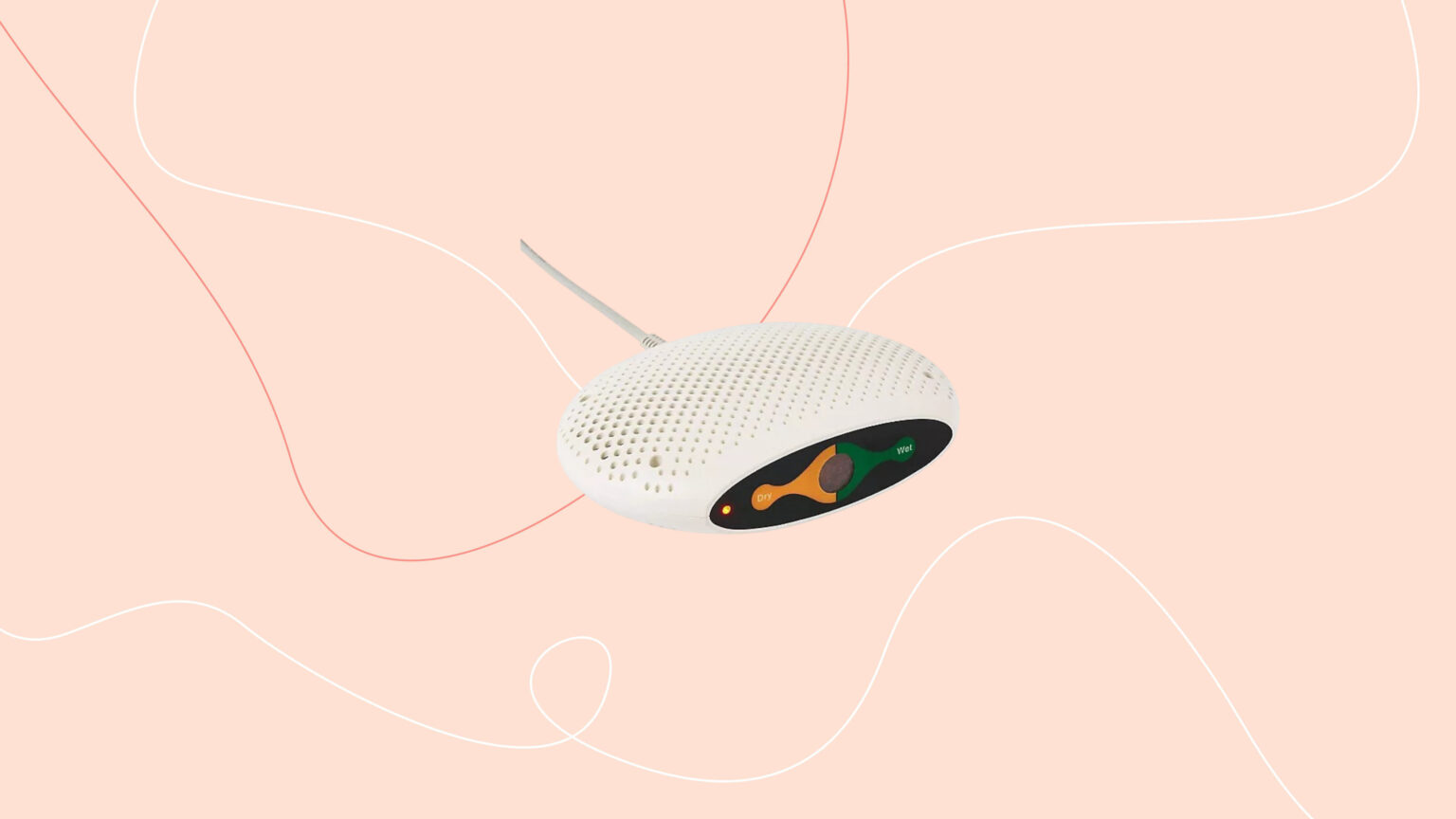If, like me, you live in an old house and you’ve ever opened the cupboard under the sink only to be greeted by that unmistakable musty scent of damp, you’ll understand the low-key joy that comes from finding a fix in the shape of a reasonably-priced gadget that actually works to combat moisture.
Enter: the Lakeland Small Dehumidifier, £24.99, which is a compact, unassuming little thing that’s made a rather impressive difference to the nooks and crannies of my family home. An energy-efficient, budget alternative to the best dehumidifiers.
In fact, at £24.99, it is officially the cheapest dehumidifier under £100 that we’ve had the pleasure of trying out. I tried it out in a few troublesome corners of my house to put it to the test. My verdict: it’s a must-buy.
Lakeland Small Reusable Dehumidifier White
The Lakeland small dehumidifier first impressions
Let’s start with the aesthetics. It’s a nifty little gadget, and it doesn’t scream “utility appliance” in the way some other dehumidifiers tend to. I popped mine by the sink in my bathroom, and it blended in seamlessly, with no clunky buttons or industrial vibes here.
What’s clever is its simplicity: charge it up, and off it goes. There’s no faffing with settings or confusing instructions. It’s designed specifically for small spaces, so think wardrobes, airing cupboards, bathrooms, home offices, or even a small kitchen.
How does it work?
Once this clever little dehumidifier is fully charged, it lasts for up to a week, quietly drawing in moisture wherever it’s needed. It’s made from flame-retardant ABS plastic and filled with moisture-absorbing silica gel beads, which you can easily keep an eye on thanks to the clear viewing window.
When it needs another charge, its handy indicator light will let you know, and the silica beads will turn green, letting you know that it needs drying out to reuse. It will get hot when plugged in, so don’t be alarmed (I was!). This is normal and allows the silica beads to dry out. You’ll need to place it at least 10cm away from plastic and other flammable items during this time.
I’ve tried it in our windowless, plugless ensuite – a room that doesn’t currently have a working extractor fan due to a broken switch. We shower in it daily, and because it is a small bathroom, steam quickly builds up, and the only way to let the steam out is to open our bedroom window situated all the way across the bedroom.
With condensation levels high, it has been working a treat at absorbing the moisture daily, and my towels were noticeably drier too. Result.
One of my favourite things is that it is perfect for rooms like a bathroom because it doesn’t require a plug to work, and it gets brownie points for its slimline design too. Ok, it won’t win in the style stakes, but it sits neatly on the tightest of surfaces.
I keep it by the sink in my little ensuite and have even used it overnight on a window in our house that gathers condensation and doesn’t have a sill. Plus, it’s quiet, being a desiccant dehumidifier over an electric unit.
And because it works for over a week between charges, it’s also low-energy, which is ideal if, like me, you’re keeping one eye on your energy bills. However, if you do keep it in a very soggy area, you might have to dry out those silica beads a little more often than once a week. I have been charging mine every four days on average, which is still manageable.
If you’re battling condensation on windows overnight or struggling with musty smells in enclosed spaces, Lakeland’s small dehumidifier is genuinely worth a look. It’s not going to solve a full-blown damp problem, but for everyday moisture management in tight spots, it really is effective.
Shop these small dehumidifier alternatives
If you’re not sure about whether to opt for a desiccant or a compressor-style dehumidifier, we also rate these small dehumidifiers that work wonders in damp spots.
Lakeland 1l Compact Dehumidifier
How To content editor, Lauren, tested this £34.99 electric dehumidifier in her Victorian home and found it to be a must-buy. It’s ideal for smaller homes or individual rooms that need a helping hand in the excess moisture department.
Black+Decker 900ml Portable Mini Dehumidifier
The Black & Decker mini dehumidifier was crowned the ‘cheapest’ dehumidifier under £100 in our guide and it retails at £39.99 but you’ll also find it’s often on sale.
Vybra Absodry Moisture Absorber Pink
This good-looking moisture absorber isn’t reusable like the Lakeland small dehumidifier but it works in a similar way. The moisture absorbing crystals collect condensation and they last up to three months, depending on humidity level and it comes with one crystal refill bag.
Will you be bagging Lakeland’s small dehumidifier? Let me know in the comments!
Read the full article here

